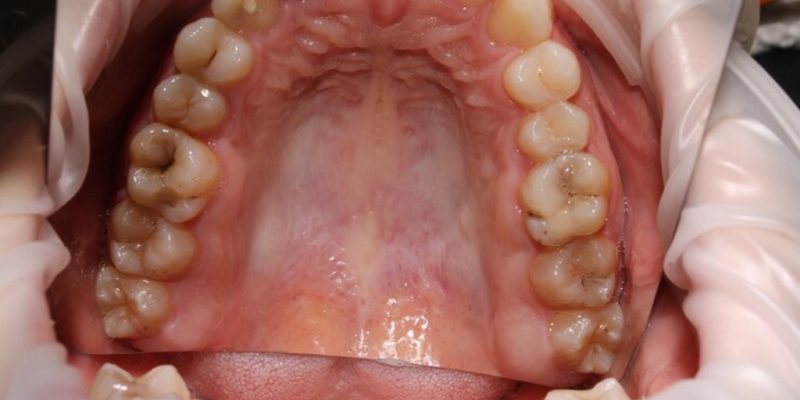- Jaypee Hospital Rd, Goberdhanpur, Sector 128, Noida
- CLINIC : + 91 8076243481
Blog

Details
READING TIME
3 min
CATEGORY
Blog
AUTHOR
Dr. Praveen Kumar
Exploring Edentulism | Shedding Light on a Dental Condition Requiring Immediate Attention
Edentulism, often referred to as toothlessness, is a significant dental condition that impacts millions of individuals worldwide. Despite its prevalence, edentulism remains a relatively overlooked aspect of oral health, yet it can have profound effects on both physical and psychological well-being. In this article, we delve into the depths of edentulism, examining its causes, consequences, and the importance of seeking timely intervention.
Understanding Edentulism
Edentulism is characterized by the complete loss of natural teeth, either in the upper (maxillary) or lower (mandibular) arch, or both. While tooth loss can occur due to various reasons, including trauma, decay, and periodontal disease, edentulism typically results from the cumulative effects of poor oral hygiene, untreated dental issues, and age-related factors.
Causes and Risk Factors
Several factors contribute to the development of edentulism, including:
Poor Oral Hygiene: Inadequate brushing, flossing, and regular dental check-ups can lead to the accumulation of plaque and tartar, eventually causing tooth decay and gum disease, which may progress to tooth loss.
Untreated Dental Conditions: Neglecting dental problems such as cavities, gum disease, and dental infections can accelerate tooth loss.
Smoking and Tobacco Use: Tobacco use increases the risk of gum disease and impairs healing, making smokers more susceptible to tooth loss.
Genetic Predisposition: Some individuals may have a genetic predisposition to conditions like periodontal disease, which can lead to edentulism.
Poor Nutrition: A diet lacking in essential nutrients can weaken teeth and gums, making them more susceptible to decay and disease.
Systemic Health Conditions: Certain medical conditions, such as diabetes and osteoporosis, can increase the risk of tooth loss.
Consequences of Edentulism
The consequences of edentulism extend beyond the oral cavity and can significantly impact overall health and quality of life:
Impaired Chewing Function: Tooth loss can impair the ability to chew properly, leading to dietary restrictions and poor nutrition.
Altered Speech: Missing teeth can affect speech clarity and pronunciation, leading to communication difficulties and social embarrassment.
Bone Loss: The absence of teeth can result in bone resorption, causing changes in facial appearance and increasing the risk of jawbone fractures.
Psychological Impact: Edentulism can lead to low self-esteem, social withdrawal, and depression due to changes in facial aesthetics and speech.
Compromised Oral Health: Tooth loss can increase the risk of oral infections, gum disease, and further tooth decay in remaining teeth.
Treatment Options
Fortunately, modern dentistry offers various treatment options to address edentulism and restore oral function and aesthetics:
Dental Implants: Implant-supported prostheses offer a permanent solution for replacing missing teeth, providing stability, durability, and natural aesthetics.
Dentures: Removable dentures are a cost-effective option for replacing multiple missing teeth and restoring chewing function and facial aesthetics.
Dental Bridges: Bridges are fixed prosthetic devices that bridge the gap created by missing teeth, restoring function and appearance.
Bone Grafting: In cases of severe bone loss, bone grafting procedures can augment the jawbone to support dental implants.
About Us
Dr. Praveen Kumar is a distinguished professional who holds a Master’s Degree in Dental Surgery from Meerut University, he furthered his education with an MBA in Health Care Administration from FMS, Delhi University. Dr. Kumar is a Diplomat of the World Congress of Oral Implantology and a Fellow of both the Pierre Fauchard Academy and the International College of Dentists. Dr. Kumar is a Diplomat of the World Congress of Oral Implantology and a Fellow of both the Pierre Fauchard Academy and the International College of Dentists.
Information
- Developed By Online B2B Digital Technology © 2024 – All Rights Reserved
